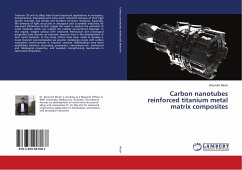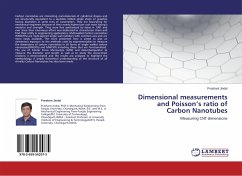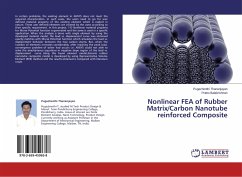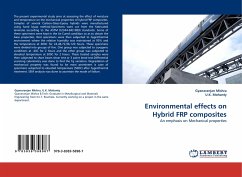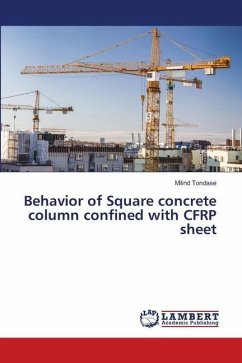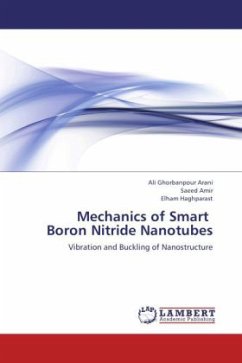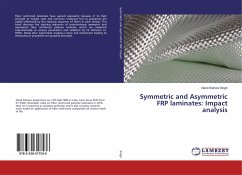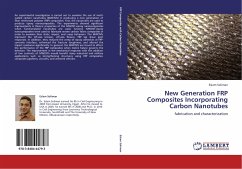
New Generation FRP Composites Incorporating Carbon Nanotubes
fabrication and characterization
Versandkostenfrei!
Versandfertig in 6-10 Tagen
52,99 €
inkl. MwSt.

PAYBACK Punkte
26 °P sammeln!
An experimental investigation is carried out to examine the use of multi-walled carbon nanotubes (MWCNTs) in producing a new generation of fiber reinforced polymer (FRP) composites. First, the nanotubes are used to produce epoxy nanocomposites. The experiments showed significant improvements in flexure properties of the MWCNT-epoxy nanocomposites when functionalized nanotubes are used. Second, MWCNT-epoxy nanocomposites were used to fabricate woven carbon fabric composites in order to examine their static, impact, and creep behaviors. The MWCNTs improved the off-axis tension, off-axis flexure,...
An experimental investigation is carried out to examine the use of multi-walled carbon nanotubes (MWCNTs) in producing a new generation of fiber reinforced polymer (FRP) composites. First, the nanotubes are used to produce epoxy nanocomposites. The experiments showed significant improvements in flexure properties of the MWCNT-epoxy nanocomposites when functionalized nanotubes are used. Second, MWCNT-epoxy nanocomposites were used to fabricate woven carbon fabric composites in order to examine their static, impact, and creep behaviors. The MWCNTs improved the off-axis tension, off-axis flexure, FRP lap shear joint responses. In addition, they reduced the creep of epoxy adhesives at FRP-concrete interface, enhanced the fracture toughness, and altered the impact resistance significantly. In general, the MWCNTs are found to affect the performance of the FRP composites when matrix failure governs the behavior. The improvement in the mechanical response with the addition of low contents of MWCNTs would benefit many industrial and military applications such as strengthening structures using FRP composites, composite pipelines, aircrafts, and armored vehicles.




